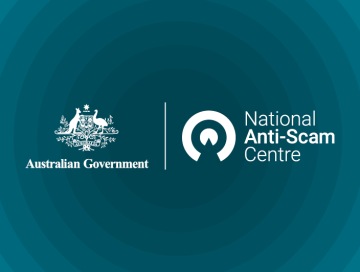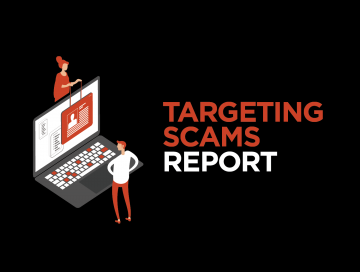89 results, showing 1 to 10

Criminals are impersonating charities and offering fake financial assistance schemes to target people experiencing financial hardship.
Scammers pretending to be real businesses are sending fake invoices to customers, with scam bank account details. These may seem to come from a business you expect an invoice from - but scammers have stolen their identity to steal your money.
Scammers are targeting people looking online for love and friendship to trick them into fake investment and cryptocurrency schemes.
The National-Anti Scam Centre is warning HSBC customers to watch out for scam texts that appear to be from their bank.

In May 2023, the government funded the ACCC to set up a new National Anti-Scam Centre.
The centre will bring together experts from government and the private sector to tackle harmful scams.
Australians reported a record $211 million in losses to scams so far this year, an 89 per cent increase compared to the same period last year, according to new data from Scamwatch.

Last year scammers stole close to $34 million collectively from people who identified as culturally and linguistically diverse (CALD), people with disability, and Indigenous Australians.

Payment redirection scams were the most financially damaging scams for Australian businesses in 2020 according to the ACCC’s latest Targeting Scams report.
Australian businesses reported over $14 million in losses to Scamwatch due to payment redirection scams last year, and average losses so far in 2021 are more than five times higher compared to average losses in the same period last year.

Australians reported a record-breaking $37 million lost to Scamwatch last year for dating and romance scams. Total losses are expected to be much higher and scammers are now using dating apps to lure victims into investment scams.



